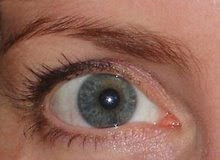His son was normal for the first two and a half years of his life, then abruptly began having coordination problems. He and his wife took their son to see a doctor who diagnosed him. He was going blind. This was terrible news. But there was far worse news, because the blindness was a symptom of a degenerative disease that would eventually paralyse him completely and shut down all his autonomic functions. At the time he was the only person in Canada with the disease. The boy was given a year to live. (He lived eight more.)
His parents quit their jobs so they could become his full time caregivers. He needed 24 hour care and monitoring. They learned to breathe with him. They learned to interpret his signals even as the signals grew fainter and fainter.
They called him their Captain because they learned they could not steer the boat on which they found themselves. They could only respond.
They petitioned for money to add a hydraulic lift to their home so their son could go outside in his wheelchair and feel the sun on his face. The organization gave them the money, and sponsored their trip home to Zimbabwe so he could be with his grandparents one more time.
Though their son could now go in and out of their home, he, and they, became the only ones who did. People do not know what to say to parents whose child is dying. People do not know what to bring when they visit. They are afraid of talking too loudly, too much, too little. They do not know what to do with that kind of pain. No one does, least of all those who are caught inside it. We isolate them. We say pain does not belong out in the world; it belongs at home.
*
Subscribe to:
Post Comments (Atom)

2 comments:
Wow... Brilliant...
I was thinking about this for a small time and glancing in my mind at the people in my life, surely one would go round once in a while with coffee, croissants, strawberries, that sought of thing. Everyone has to eat once in a while. I think death needs company, well, what I mean is, I think its important to turn up, hang out, and stay for a while. Of course if you are told to leave fine, but I think its important to make a showing. Us westerners really suck at this death stuff. We have very few rituals and very private grief. The grief is in all of us, its way better to share, to open up, to scream, to acknowledge and appreciate the sorrow, with people around us, no matter how this confusion, love, and mourning can lead us. Then after all of the initial stages of grief, one can begin to recover. However, for many of us, in this society, we have to create our own rituals, our own expression because many of us have been confused with what we should do.
You're right. We do not handle death well. I don't handle death well. I want to be left alone with it, when I would probably most benefit from being vulnerable enough to share. But that's the problem, isn't it. It is painful to be alone with it, but it is publicly painful to share it. And it is hard to be with someone who is in pain, hard to know how to be supportive in the best way. I think I am learning a lot about this (because I've had no choice). But it's still difficult, incredibly difficult.
Post a Comment